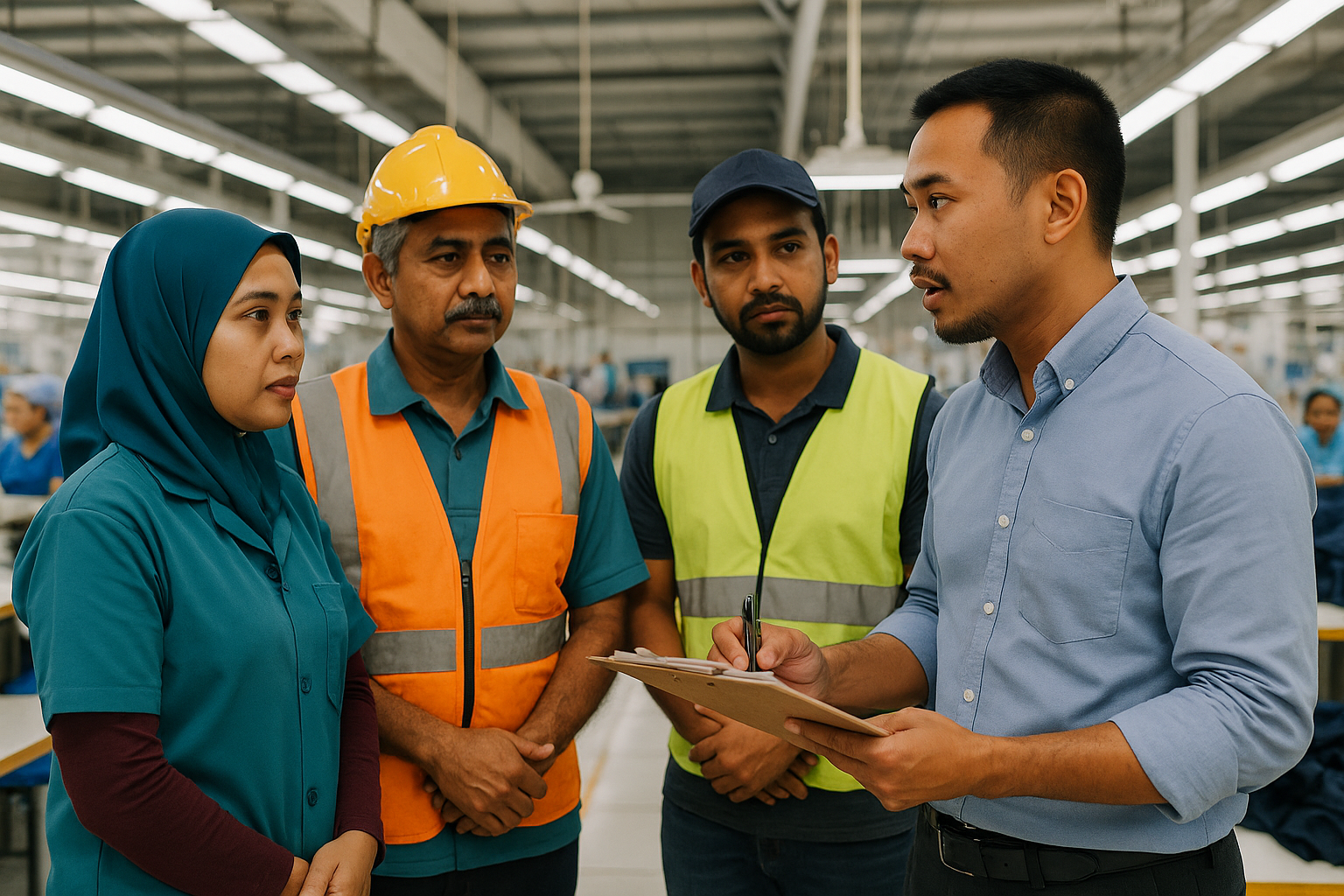Türkiye Delegation Studies Swedish Model for Workplace Safety and Compliance
The study visit offered a first-hand look at Sweden’s internationally recognised model of workplace compliance, occupational safety and health (OSH), and social dialogue.

A high-level tripartite delegation from Türkiye visited Sweden between 25–29 August 2025 as part of the EU-funded project “Workplace Compliance through Labour Inspection Guidance and Social Dialogue (WPC)”, jointly implemented by the International Labour Organization (ILO) and the Directorate of Guidance and Inspection (DoGI) of the Turkish Ministry of Labour and Social Security. The study visit offered a first-hand look at Sweden’s internationally recognised model of workplace compliance, occupational safety and health (OSH), and social dialogue.
A Comprehensive Engagement with Swedish Institutions
The delegation included the Director of DoGI, senior labour inspectors, and representatives of Türkiye’s largest workers’ and employers’ organisations, TÜRK-İŞ and TİSK, alongside ILO officials. Over the course of the visit, the group engaged with a broad range of Swedish stakeholders:
-
Ministry of Employment (Arbetsmarknadsdepartementet)
-
Swedish Work Environment Authority (SWEA)
-
Swedish Agency for Work Environment Expertise (SAWEE)
-
Swedish Trade Union Confederation (LO) and Swedish Confederation of Professional Employees (TCO)
-
Healthy Workplaces Initiative (Suntarbetsliv)
-
Confederation of Swedish Enterprise (Svenskt Näringsliv)
-
National Mediation Office (Medlingsinstitutet)
-
Construction Safety Park (Byggbranschens Säkerhetspark)
The delegation also held discussions with the Embassy of the Republic of Türkiye in Stockholm on prospects for bilateral cooperation in labour relations.
Preventive Safety and Data-Driven Inspections
Discussions revealed how Swedish workplace compliance is underpinned by a preventive safety culture, reinforced by data, research, and digital tools. Non-standard forms of employment, such as platform work and telework, were explored as emerging challenges for labour inspection.
A distinctive feature of the Swedish model is the workplace safety representative system, where union-mandated representatives are required in workplaces with five or more employees. These representatives hold the authority to halt work in cases of imminent danger, giving them a powerful role in ensuring compliance.
Meetings with SAWEE highlighted how evidence-based policymaking drives Swedish OSH strategies, with ongoing research into psychosocial risks, ergonomics, chemical and biological hazards, and climate-related OSH challenges.
Strong Collective Bargaining and Social Dialogue
Sessions with Sweden’s trade union confederations underscored the country’s 90% collective bargaining coverage rate, a level among the highest globally. Collective agreements in Sweden regulate not only wages but also working conditions such as overtime, annual leave, and occupational safety measures—significantly reducing the need for direct inspector intervention.
At Suntarbetsliv, the delegation saw how joint initiatives in the municipal sector create practical tools, training materials, and preventive practices to support local compliance. Discussions with Svenskt Näringsliv centred on how employers’ organisations balance productivity with fair competition, and how collaboration with unions through initiatives like Prevent strengthens OSH at the national level.
Practical Training in the Construction Safety Park
A highlight of the visit was the immersive training experience at Byggbranschens Säkerhetspark, where participants engaged in simulated high-risk scenarios, including work at heights, confined space operations, machine safety, and accident response. Financed by employer organisations, the Safety Park model offers practical, hands-on training and inspired discussions about developing similar centres or mobile OSH training units for Türkiye’s high-risk sectors.
Wage-Setting and Industrial Peace
At the National Mediation Office, the delegation gained insight into Sweden’s wage-setting mechanisms, mediation in industrial disputes, and the production of wage statistics that inform both negotiations and policymaking. These systems were highlighted as central to maintaining Sweden’s high levels of industrial peace and compliance.
Key Lessons for Türkiye
The study visit provided valuable lessons for strengthening workplace compliance in Türkiye:
-
The effectiveness of high unionisation and bargaining coverage.
-
The active participation of social partners in compliance mechanisms.
-
The importance of preventive safety cultures reinforced by law and practice.
-
The role of data-driven, evidence-based policymaking in anticipating new risks.
These lessons are expected to directly inform the WPC Project’s goal of advancing labour inspection capacity, OSH standards, and social dialogue in Türkiye, ensuring that workplace compliance contributes to both worker protection and fair competition.










